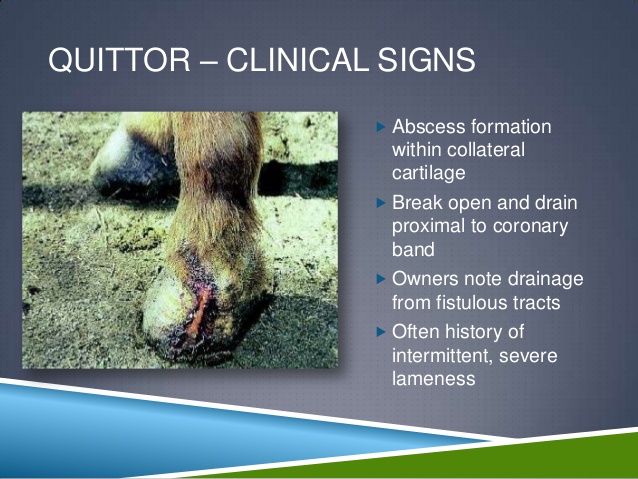
quittor [kwit-er] ExamplesWord Origin noun Veterinary Pathology.
- purulent infection of horses and other hoofed animals, characterized by chronic inflammation of the lateral cartilage of the foot and formation of fistulas that open above the coronet, usually resulting in lameness.
Origin of quittor 1250–1300; Middle English quittere Old French cuiture cooking Latin coctūra, equivalent to coct(us) (past participle of coquere to cook1) + -ūra -ure Examples from the Web for quittor Historical Examples of quittor
It is the wound remaining after the slough which we may really regard as a quittor.
Harry Caulton Reeks
With the escape of the pus at the coronet the quittor is fully formed.
Harry Caulton Reeks
The origin of quittor is generally some injury to the hoof, such as a corn, a prick, or an inequality of tread.
Cooley’s Practical Receipts, Volume II
Arnold Cooley
Prior to the development of a quittor there is always swelling at the coronet, accompanied with heat and pain.
Special Report on Diseases of the Horse
United States Department of Agriculture
We have already remarked that this is a point of interest to be remembered in connection with the operation for quittor.
Harry Caulton Reeks
British Dictionary definitions for quittor quittor noun
- vet science infection of the cartilages on the side of a horse’s foot, characterized by inflammation and the formation of pus
Word Origin for quittor C13: perhaps from Old French cuiture a boiling, from Latin coctūra a cooking, from coquere to cook
 Liberal Dictionary English Dictionary
Liberal Dictionary English Dictionary